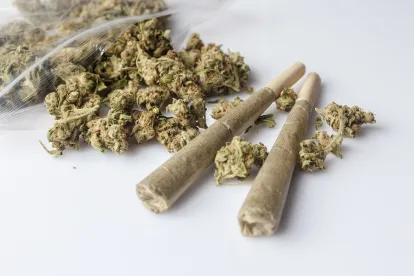On Tuesday, February 5, 2019, the New York City Department of Health and Mental Hygiene (NYCDOH) announced that “restaurants in New York City are not permitted to add anything to food or drink that is not approved as safe to eat … Until cannabidiol (CBD) is deemed safe as a food additive, the Department is ordering restaurants not to offer products containing CBD.” Coinciding with the announcement, the NYCDOH revealed that it began quietly enforcing its new policy in January, ordering five restaurants to stop using CBD in their food and beverage products.
The NYCDOH appears to be following the FDA’s lead. Over the past few years and as recently as December 2018, the FDA has publicly stated that it is unlawful under the Federal Food Drug & Cosmetics Act (FDCA) to “introduce food containing added CBD or THC [tetrahydrocannabinol, the main active ingredient of cannabis] into interstate commerce, or to market CBD or THC products as, or in, dietary supplements, regardless of whether the substances are hemp-derived.” The FDA reasons that CBD and THC are both “active ingredients in FDA-approved drugs and were the subject of substantial clinical investigations before they were marketed as foods or dietary supplements.” It is therefore illegal under the FDCA to introduce drug ingredients into the food supply or market them as dietary supplements.
Additional concerns for New York City regulators most likely revolve around the recent proliferation of CBD menu options in restaurants and bars across the city, despite the scant regulatory framework ensuring consumer safety. The NYCDOH appears to be putting the industry on hold until a regulatory framework is hashed out.
Like New York City, California similarly took the hemp-CBD industry by surprise last July when it released a FAQ document adopting FDA guidance and banning all hemp-based CBD products intended for human consumption.
Uptick in Enforcement & Regulation
Although the NYCDOH announcement was a jolt, officials have hinted at ramped up enforcement over the past several months. Last December, and in the midst of announcing a new licensing category for New York’s industrial hemp program, the state Department of Agriculture and Markets released a FAQ document informing licensees that the manufacture and sale of ready-to-eat food with CBD infusions or CBD extracts are impermissible. Rather, any CBD product intended for human consumption must (1) be produced under accepted dietary-supplement standards and (2) be properly labeled and packaged for sale under FDA regulations for dietary supplements. The Department of Agriculture and Markets made clear its intent to promulgate additional regulations for CBD products derived from hemp.
Likewise, in late December, New York City Mayor Bill de Blasio released a lengthy report with suggestions on how best to approach adult-use cannabis legalization. One of the recommendations outlined in the report included permitting only “sole-purpose cannabis business.” Acknowledging that CBD poses far less of a public health concern than THC, and that many city establishments already sell CBD products, the restrictions would not apply to businesses selling CBD-only products. The report notes, however, that there must be at least “basic regulations of CBD-only products in keeping with any food or drug.” This may have been the impetus for recent enforcement actions by the NYCDOH.
State and local governments across the country are taking similar enforcement action. Beginning in January 2019, there have been several reports of inspections of manufacturing and retail facilities with resulting CBD product embargos ordered by the California Department of Public Health. Last week, the Maine Department of Health and Human Services ordered the removal of CBD edible products from store shelves “because hemp-derived products are not a federally approved food additive.” Ohio officials also are cracking down on CBD retailers. According to various news reports, the Ohio Department of Agriculture is working with local health departments and police agencies to embargo CBD products. Similar actions should be expected in more states over the coming weeks and months.




 />i
/>i
